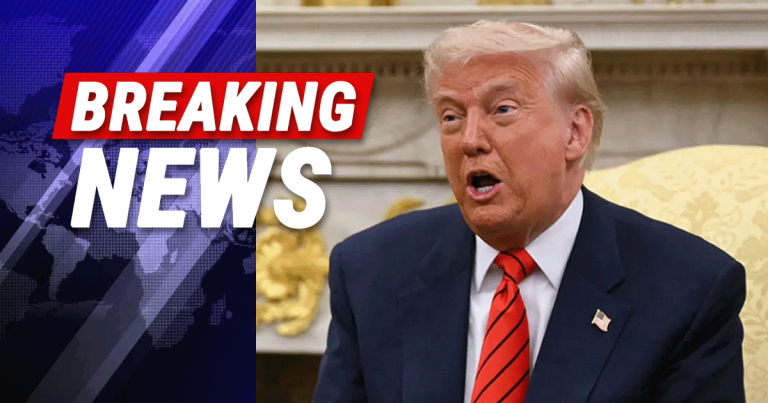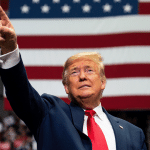
When times get tough, even the most self-declared independent neighbors remember who keeps the lights on. It’s an old pattern—dismiss American strength in public, but quietly depend on it when danger starts creeping into the backyard.
They sip fair-trade espresso and scoff at the Stars and Stripes—until they want in on the protection plan. And now, in an unexpectedly candid twist, President Donald Trump has extended the offer: want U.S. missile defense for free? Just become the 51st state.
From ‘Fox News’:
“I told Canada, which very much wants to be part of our fabulous Golden Dome System, that it will cost $61 Billion Dollars if they remain a separate, but unequal, Nation, but will cost ZERO DOLLARS if they become our cherished 51st State,” Trump wrote on Truth Social.
Welcome to 2025 foreign policy—where statehood, security, and satire collide.
One dome to rule the neighborhood
Trump’s proposed “Golden Dome” is more than a flashy promise—it’s a full-spectrum missile defense initiative built for a volatile world. The $175 billion system of satellites and interceptors is designed to ward off incoming ballistic missiles by detecting and responding in real time, creating a high-tech security layer over the United States and its territories.
So it’s no surprise that Canada wanted in. What is surprising, though, is how Trump chose to present the terms. In his usual blend of showmanship and policy, the president offered full access to Canada—if they embraced statehood. Otherwise? Pay up.
Prime Minister Mark Carney, fresh off an election win fueled in part by anti-Trump rhetoric, was quick to throw cold water on the idea. “Canada is not for sale,” he declared. Yet at the very same time, his office admitted that “wide-ranging and constructive discussions” about U.S. defense cooperation—including the Golden Dome—were, in fact, happening.
So what is it: principled defiance or practical dependence?
Crown, contradictions, and quiet asks
The drama didn’t end with Carney. Even King Charles III chimed in during his visit to Canada, stating somewhat loftily: “Canadians can give themselves far more than any foreign power on any continent can ever take away.”
Perhaps—but only if no one is aiming warheads their way.
The subtle contradiction between the loud rejection and quiet cooperation raises the real question: Do progressive governments secretly accept that their sovereignty depends on conservative strength? After all, for all the lectures about climate leadership and social reform, when actual danger knocks, world leaders don’t call Brussels. They call Washington.
Missiles, money, and masks off
Trump’s pricing model offers a memorable twist. Canada can either pay a staggering $61 billion to independently ride under the U.S. security net—or wave the request by signing on as a U.S. state. It’s cheeky. It’s provocative. It’s classic Trump. But it’s also revealing.
Because behind the headline, there’s truth: allies like Canada want American defense but don’t want to share in the cost or political accountability. That’s a familiar theme. From NATO spending gaps to trade imbalances, Trump has consistently pointed out that America carries too much of the world’s burden while getting lectured all the while.
It’s something conservatives have long known: protection isn’t just a right—it carries responsibility, one that progressive allies often prefer to dodge.
A cultural curveball
Now let’s step into the hypothetical—because that’s where conversation becomes uncomfortable.
What if some Canadians actually liked the idea?
Consider this: in a country where taxes climb, speech laws tighten, and basic permissions hinge on bureaucratic approval, the allure of U.S. liberty—the Second Amendment, parental rights, decentralized power—might begin to look tempting. Especially for those Canadian citizens tired of being told what’s best by central planners in Ottawa.
The media won’t say it—and Carney certainly can’t—but democratic history has a funny way of proving that people go where freedom leads. If the current Canadian trajectory continues, the 51st state might not be an offer—it might be an escape hatch.
More than a moment—this is a message
Make no mistake. Canada isn’t on the verge of joining the Union tomorrow. But Trump’s offer wasn’t about redrawing borders—it was about redrawing expectations. For once, the world sees what conservative leadership looks like on the international stage: strong, strategic, and unashamed in pursuing American interests first.
And if allies want a seat at that table, they’ll need to stop pretending they don’t value what America provides—safety, prosperity, and strength based on principle, not popularity.
Trump’s message was loud, clear, and golden: If you want protection, it comes with a price. And suddenly, even the proudest progressives are listening.
Key Takeaways
- Trump’s offer to Canada challenges global freeloading by tying defense access to shared responsibility.
- Canadian leaders dismissed statehood while actively negotiating U.S. protection under Trump’s missile defense plan.
- Progressive countries increasingly rely on American military strength—whether they admit it or not.
- Conservative leadership once again highlights that real diplomacy begins with unapologetic national strength.
Sources: Fox News


